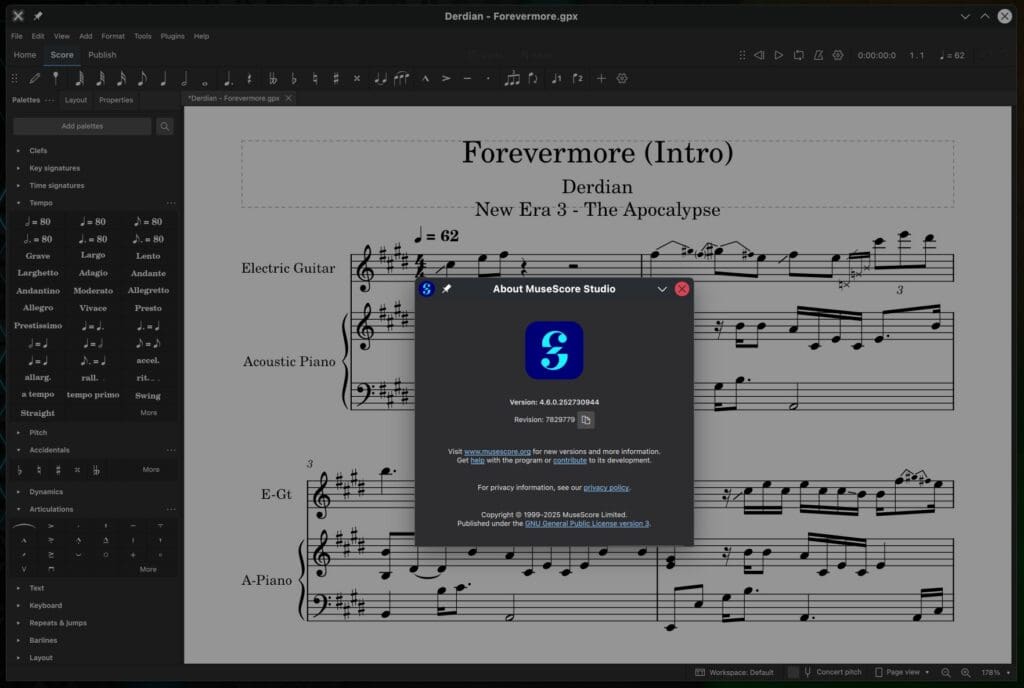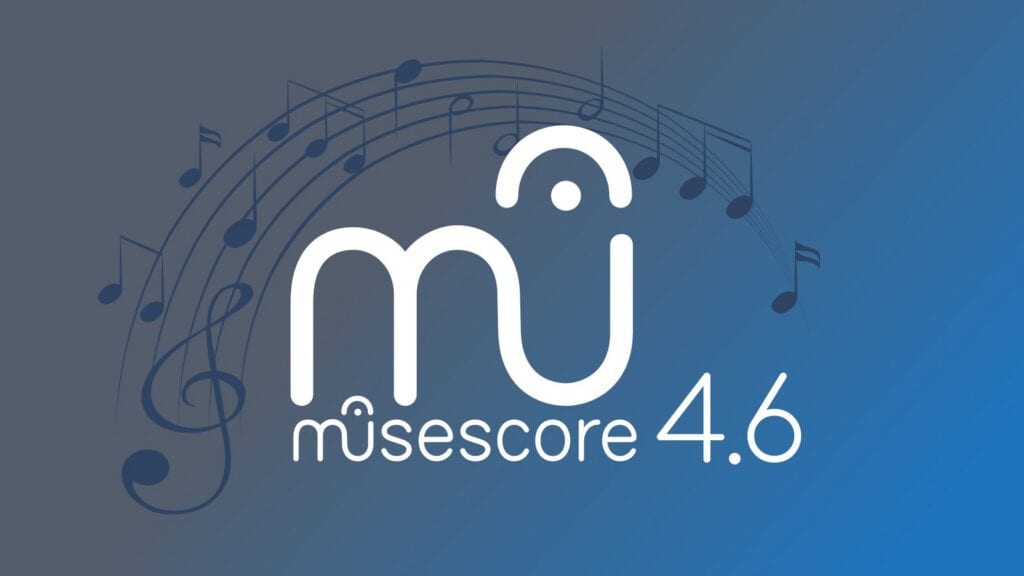MuseScore Studio, a free and open-source music notation software that allows users to create, edit, and play sheet music, and is one of the best in its class, has released its brand new 4.6 version.
On the playback side, real-time note preview now supports duration, velocity, and sustain pedal control, giving MIDI keyboard users a more natural experience. The long-missed count-in feature also returns, while MuseSounds playback no longer fades in when the play button is pressed. Performance has also been improved, with large scores loading and saving faster than before.
Engraving sees one of its biggest updates yet. Empty staves can now be shown or hidden with much finer control. System markings, such as measure numbers, can be placed below the staff, and repeat markers and rests are better aligned. The update also adds support for any SMuFL-compliant music font, plus fixes for slurs, ties, and dynamics that previously caused collisions.
For guitarists, MuseScore Studio 4.6 introduces engraving and playback support for hammer-ons, pull-offs, and tapping, alongside smarter fretboard diagrams and the ability to import TablEdit v3. Chord symbols also received a complete overhaul, now allowing stacked modifiers, parenthesized extensions, and even polychords.

Linux users in particular will notice an important addition: full VST3 support, along with fractional scaling fixes and better stability in continuous view navigation. macOS compatibility has also been extended to cover the new Tahoe 26 release.
Other highlights include improvements to harp pedal diagrams, new percussion options such as handbells and handchimes, expanded text formatting tools, accessibility fixes for screen readers, and a refreshed welcome screen to guide new users.
The update is now available for Windows, macOS, and Linux. Users on Windows and macOS will start receiving in-app notifications in the coming days, while Linux users can download the new version directly. Additional builds, including a portable Windows executable, are published on the project’s GitHub releases page.
For more information, see the announcement.
